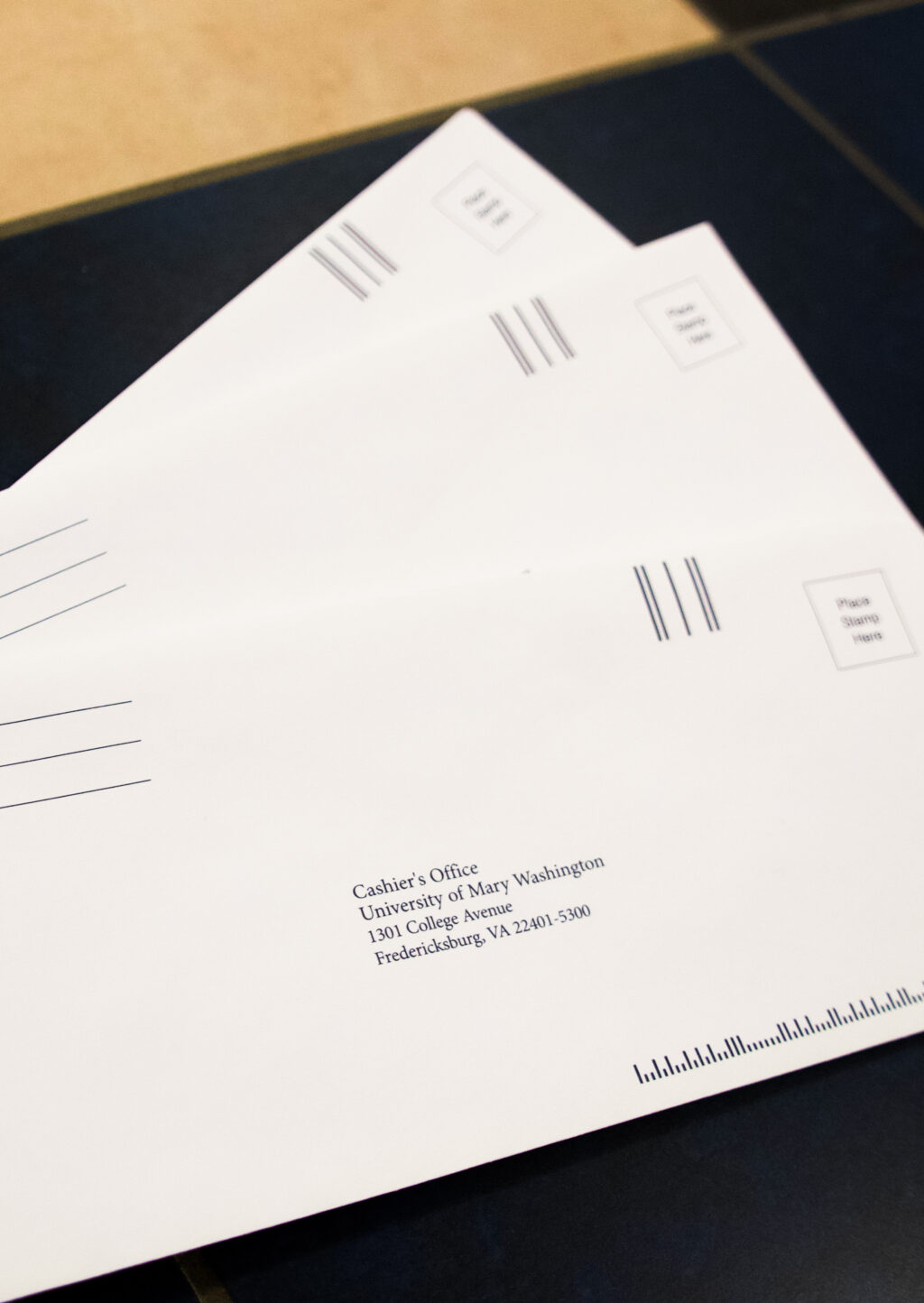UMW Tuition Promise offers support to Pell-eligible students in effort to improve student retention rates, financial accessibility
3 min read
Pell eligibility is determined through FAFSA. | Abbey Magnet, The Weekly Ringer.
by MARTINA PUGH
Staff Writer
As of Dec. 11, 2023, the University of Mary Washington will offer a tuition promise to Pell-eligible students in Virginia, according to UMW Voice. This promise will enable students to receive financial assistance to fund their tuition during their time at UMW, and it also provides short-term assistance for emergencies that affect students’ ability to pay for tuition.
Pell eligibility is determined through the Free Application for Federal Student Aid, and students who report an annual gross income below $100,000 are encouraged to apply. Those who qualify will be eligible to receive full tuition assistance toward their undergraduate degree, though this assistance does not include the cost of housing or meal plans.
The State Council of Higher Education for Virginia (SCHEV) awarded Mary Washington $4 million, which will help further the support of Pell Grant recipients. In addition, the University has created the Student Transition Access and Retention Services (STARS).
STARS will act as an extension to the established student transition program that gives access to 50 students from underrepresented communities the ability to live on UMW’s campus over the summer and earn credits while getting accustomed to college life.
The development of STARS will not only increase the number of students who participate in the transition program but also introduce a financial advisor and a retention specialist for all students.
“We wanted to make sure that we are servicing our students beyond that first year to continue making sure that they have the support, the resources and all the things they need up until graduation,” said Justin Wilkes, the director of the student transition program at UMW.
The financial advisor will work within the STARS department as a direct facilitator to help students understand their aid packages and meet the requirements to retain their aid, even if the students are not involved in the student transition program.
“The Tuition Promise and the other investments in student retention are ways that we can ensure our students have support mechanisms in place that are both proactive to planning their four years at UMW as well as reactive when emergencies happen so we can see them successfully cross the stage at graduation,” said Melissa Yakabouski, the dean of admissions and associate vice president.
Moreover, the promise is intended to “reach prospective students who may initially avoid pursuing a four-year college option due to perceived out-of-pocket costs,” said Yakabouski.
This comes after last year’s 3% graduate tuition increase and the 5% increase in housing, dining and auxiliary comprehensive fees for all students that caused many students to feel disgruntled with the sudden change and increased cost.
“It’s a very stressful environment, which I totally understand because in my freshman year, I never wanted to step foot in the financial aid office,” said Haley Cotton, a junior history major who has worked in the financial aid office for two years.
The struggles with financial aid often come with a lack of knowledge about the system, according to Cotton.
“[The] literacy that they give you I feel like isn’t truly telling you the extent of what’s going to happen and what’s going on,” she said.
The grant will enable the school to be better equipped to handle student financial instability in an effective way that allows students to pursue higher education without the burden of financial stressors.
Yakabouski spoke on the grant for students with financial challenges.
“UMW will fill the remaining gap in tuition for Pell-eligible Virginians who enroll at UMW,” she said. “These are among our most at-risk students who face ongoing financial challenges where even the smallest unplanned event can derail their education.”
Yakabouski advised students to still sign up for scholarships through the school, even if they are Pell Grant recipients.
“Students will be required to file the FAFSA annually,” she said. “Pell eligibility is required to receive the tuition gap-filling funds. The amount per student will be determined by the gap in their tuition.”
For some students, their Pell eligibility may not stay consistent during their time at UMW due to changes in the annual income they report. As the FAFSA is completed every year, students will know if they qualify on an annual basis.
“Should a student no longer qualify, there may be additional aid and opportunities we could consider,” said Yakabouski. “We are committed to meeting this gap while intending to work within the limits of the SCHEV grant program.”


